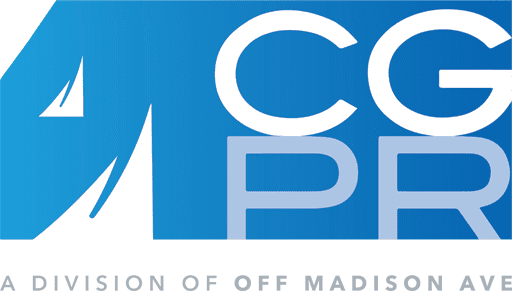One Step Forward – Two Steps Back – A Look at The 2024 Sourcing Journal Sustainability Summit
Perhaps this is the phrase that best encapsulates the recent Sustainability Summit hosted by Sourcing Journal that brought together industry leaders and stakeholders addressing the pressing issue of sustainability in the fashion community. The event, attended by professionals from various segments of the fashion, media, and textile industries, served as a platform for candid discussions and introspection on the current state of eco-friendly practices within the sector. There certainly were highlights, including amazing technical advances including Lycra’s collaboration with Qore to hand wringing over what went wrong with Renewcell. In addition, the state of regulation in the U.S., especially PFA regs in California, and recent laws passed in the EU, were top of mind.
As an attendee with a long-standing career in media closely following industry trends, the sentiment of optimism for progress that prevailed a few years ago seems to have hit a plateau. While acknowledging the advancements in technology reshaping the industry, there appears to be a concern about the reluctance or lack of willingness among key players to prioritize sustainability over profits.
Top takeaways:
- There is a perpetual state of confusion regarding sustainability initiatives leading to what some perceive as stagnation
- Regulation may be the only incentive to truly move the industry forward, with one panelist noting, “Legislation is a Tsunami – it is coming.”
- Greenwashing has resulted in some brands adjusting their labels or retracting their claims rather than reassessing what they actually need to do
- Too many brands are looking for perfection over progress
- Collectively, the industry must communicate the technologies, benefits and value to the consumer in a way that is easy to understand
- Consumers say they are willing to spend more for sustainably made goods while the evidence of where they are putting their dollars tells quite a different story
- It is imperative that the industry find a way to tell their story to the consumer so they understand their purchase choices completely, and ultimately, the role they play and their long term impact on the environment
Sourcing Journal Executive Editor Peter Sadera began the day with a sobering outlook:
“Unfortunately, of late, I’ve been feeling a sense of stagnation. From an optimistic backdrop of true progress just a few years ago, it seems we have stalled. Not from an innovation standpoint. I’m amazed at some of the new technologies that are reshaping our industry. But stalled from a willingness standpoint…stalled in terms of mind-set when it comes to putting the planet before our profits. And this concerns me.
I find it worrying that as greenwashing began to cause reputational damage to brands and new legislation set out to punish mislabeling, large players in our industry simply changed their labels or pulled back on their claims rather than rethink their sustainability strategies.
I find it worrying that companies looking to bring innovative, circular and recycled fibers and inputs to market are seeing a lessening of demand, poor industry support and uncertain futures at best.
I find it worrying that poll after poll shows consumers say they are willing to spend more for sustainably made goods while the evidence of where they are putting their dollars tells quite a different story.
Sessions Included: In Conversation with Michael Levine, Under Armour, The Human Side of Sustainability, Taking a Circular Journey, The Natural Difference, Circularity Begins with Design, Converting Obstacles to Opportunities, Legal Lessons, Mitigating Risk Across the, Supply Chain, A Candid Conversation with Uniqlo’s Seneiya Navajas, Innovating for Sustainable Change, Power of Partnership, CSR & ESG: Obligation or Opportunity, Traceability in Action, Scaling Up Material Innovations, and Social Impact, A Value Proposition
Here are a few nuggets (by no means meant to be exhaustive):
Inka Apter, Director, Material Sustainability & Integrity, for Eileen Fisher: Ms. Apter reinforced the brand’s mission about being committed to timeless designs so their customers can have a durable wardrobe, noted that legislation is going to be key and that it would be a paradigm shift. “I do think there is no turning back.” She continued to ponder, “How do we become more responsible and make less?” and mentioned that there is still room for “actors” in this space and that today, when approaching circularity, “A lot of brands don’t know where to start.” In the end, “The longer we can keep the garment in use, the better it is for the environment.”
James Roger, VP, Sustainability, at Rothy’s: Brands are set up to have big warehouses with lots of SKUS – “Let’s reverse that. That’s not what we are in the business to do. CEOs are averse to reverse logistics because they are seeing that the profit margin is not enough.”
Michael Levine, Chief Sustainability Officer & Vice President, at Under Armour, talked about their three design principles: Make It Better, Make it Last, and Make It Again.
Maxine Bedat, executive director and founder of the New Standard Institute: “Voluntary initiatives are not leading us to where we want to go. It is time to have those hard conversations. We need a major collective investment to get the results that we want,” and lastly, “Regulation can be our friend.”
Abrima Erwiah, Co-founder of Studio One Eight Nine, focused on achieving social impact as it relates to education, economic/employment opportunities and empowerment, said: “Brands are like banks with terrible terms,” and to address today’s sustainability situation, “There must be more advances in technology along with legislation and education.“
Tricia Carey, Chief Commercial Officer of Renewcell: She thanked people for reaching out, referring to the recent developments, mentioning, “This was not just about transacting business; the hardest thing was dismantling my team.” She talked about what went right — the building of a facility and the motivation that came from this innovation and what went wrong– “The timing, the hype, systematic change and receiving promises versus purchase orders.” Lastly, she said, “Too many brands were looking for perfection over progress.”
Karla Magruder, President & Founder of Accelerating Circularity, said: ‘We have to create an entirely new system and everybody has to do their part.”
Dana Davis, Vice President of Sustainability, Product & Business Strategy at Mara Hoffman, shared: ”There must be collaboration within the entire supply chain,” and that, “Legislation is a Tsunami – it is coming.”
Mariana DiMartino, Head of Growth at Arrive Recommerce, said: All brands today can sell non new goods. Key challenges are the cost for getting started and oftentimes, the ESG division doesn’t have the budget. She said Yeti and Burton are doing a great job at recommerce and reminded the audience that benefits of recommerce include creating accessibility, bringing in new customers and being able to enter new markets.
Chelsea Murtha, Senior Director, Sustainability, at American Apparel & Footwear Association, said in reference to pending legislation: “Chaos is the right word to describe what is happening now; there needs to be a serious discussion about how to restructure the market to deal with this challenge.” In addition, “There is a clear disconnect between policy makers and people actually running the businesses.”
Jean Hegedus, Director, Sustainability at The Lycra Company, and Andrea Vanderhoff, Director, Technology & Sustainability at Qore, talked about their collaboration to pioneer large-scale production of bio-derived spandex, marking a significant leap towards a greener textile industry – driven by Iowa field corn.
Lisa Diegel, Director of Global Sustainability at Faherty Brand: Going through the B Corp process enabled her to discover opportunities and gaps in their approach and that working with the overall community is critical.
Logan Duran, VP, ESG Strategy at Tapestry: “If we don’t tell our story, someone else will fill in the gaps,” while commenting that, “Regulation today is making it more challenging, especially when there still is so much in question.”
Buddy Teaster, President & Chief Executive Officer at Soles4Souls, talked about the fine line of balancing social benefit with business benefit and using product to its full potential. He shared that one barrier to entry included this mentality, “This approach is not for us.” He also reminded us it is important to communicate and bring the impact back to leadership and internal audiences.
Brian Ehrig, Partner, at Kearney: From a business perspective, it is important to spread the word about the positive impact brands can have and that having a clear path to achieving business for good is having a good business model.
Despite the challenges, there is reason for optimism. The summit fostered a sense of collective responsibility and highlighted the power of collaboration in driving meaningful change. From advanced material solutions to initiatives promoting circularity and transparency, this energetic gathering showcased the industry’s desire and capacity for creativity, innovation and adaptation.
I am looking forward to seeing what is next.

